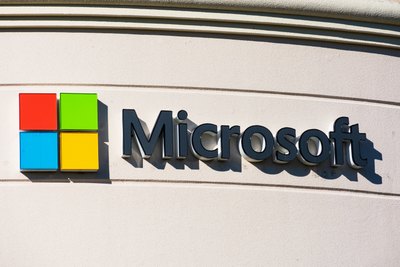
Microsoft’s cloud business is under surveillance in Europe: The association of Cloud Infrastructure Services Providers in Europe (CISPE) has set up new monitoring body to ensure the tech giant complies with a legal settlement to keep cloud licensing practices fair in the region.
The European Cloud Competition Observatory (ECCO) will operate independently from CISPE, and will also keep an eye on other licensing practices impacting both cloud providers and customers in the region.
ECCO is aimed at monitoring the practices of big tech companies such as Microsoft to ensure the market remains competitive for all players. It was formed as part of Microsoft’s July settlement with CISPE after numerous European Union cloud providers complained about changes Microsoft had made to the terms of its outsourcing license agreement.
“Its initial function will be to monitor progress on delivering the requirements of that settlement,” a CIPSE spokesperson told Network World in an email Wednesday. “In this way, it is an innovative and, we believe, effective way to find and enforce negotiated settlements to anti-trust issues.”
Cloud vendors had raised concerns after their customers were asked to pay more to run Microsoft software in non-Microsoft cloud environments, under what they saw as restrictive cloud licensing policies. Microsoft settled to avoid being subject to further antitrust proceedings by the EU.
Ensuring a level playing field
European enterprise IT user organizations such as Cigref in France and Beltug in Belgium will act as observers for ECCO, ensuring customer perspectives are reflected in its reports, according to CISPE. Technical experts also will contribute specialized insights as needed, and Microsoft will also take part in the proceedings.
ECCO’s initial task is to assess Microsoft’s progress on software commitments outlined in the settlement, and a technical summit is scheduled at Microsoft’s Redmond headquarters in December. ECCO will release its first progress report post-summit, with follow-ups planned for February and April.
The observatory will also monitor other software giants that operate in Europe, including Broadcom and its subsidiary VMware, to ensure that their practices do not restrict cloud choices for European customers, according to CISPE.
“Some software providers are using unfair licensing terms as a way of limiting this choice and creating monocultures,” the CISPE spokesperson said. “ECCO will call out these unfair practices helping to create a cloud sector in which all parties can build the cloud solutions they need.”
More choice for CIOs
It’s not the first time an industry group has created a watchdog to ensure a fair and competitive marketplace, and historically “they rarely have outsized impact,” noted one industry analyst.
What they can do, however, is to “set precedents letting tech vendors known to play by the book and not assume they are too big to be brought in line,” a message that’s critical to send to promote fair competition, said Yugal Joshi, a partner at Everest Group.
If ECCO operates as intended, it should help bolster a local cloud ecosystem that has been hamstrung by Microsoft and other hyperscalers that have used their power to make it cost-prohibitive for smaller players to diversify their offerings.
“Most of the cloud activity was cornered by Microsoft and other hyperscalers, and such incremental changes may not have material impact on competitive intensity,” Joshi observed.
With a governing structure in place, local players can now create “cloud-like offerings, as well as deliver in client-owned data centers,” he said. “Getting to functional and feature parity is critical for these local cloud vendors to be competitive,” Joshi said.
With more players in the space, then, CIOs will have more choice in terms of how to implement and operate enterprise cloud services; however, this may not always be a good thing, he said.
“It may lead to more confusion and longer deliberations, which can harm already restrained spending environment,” Joshi acknowledged. In fact, SMBs may benefit more from such choice, as they are likely to engage more with local vendors more often than large enterprises, he said.